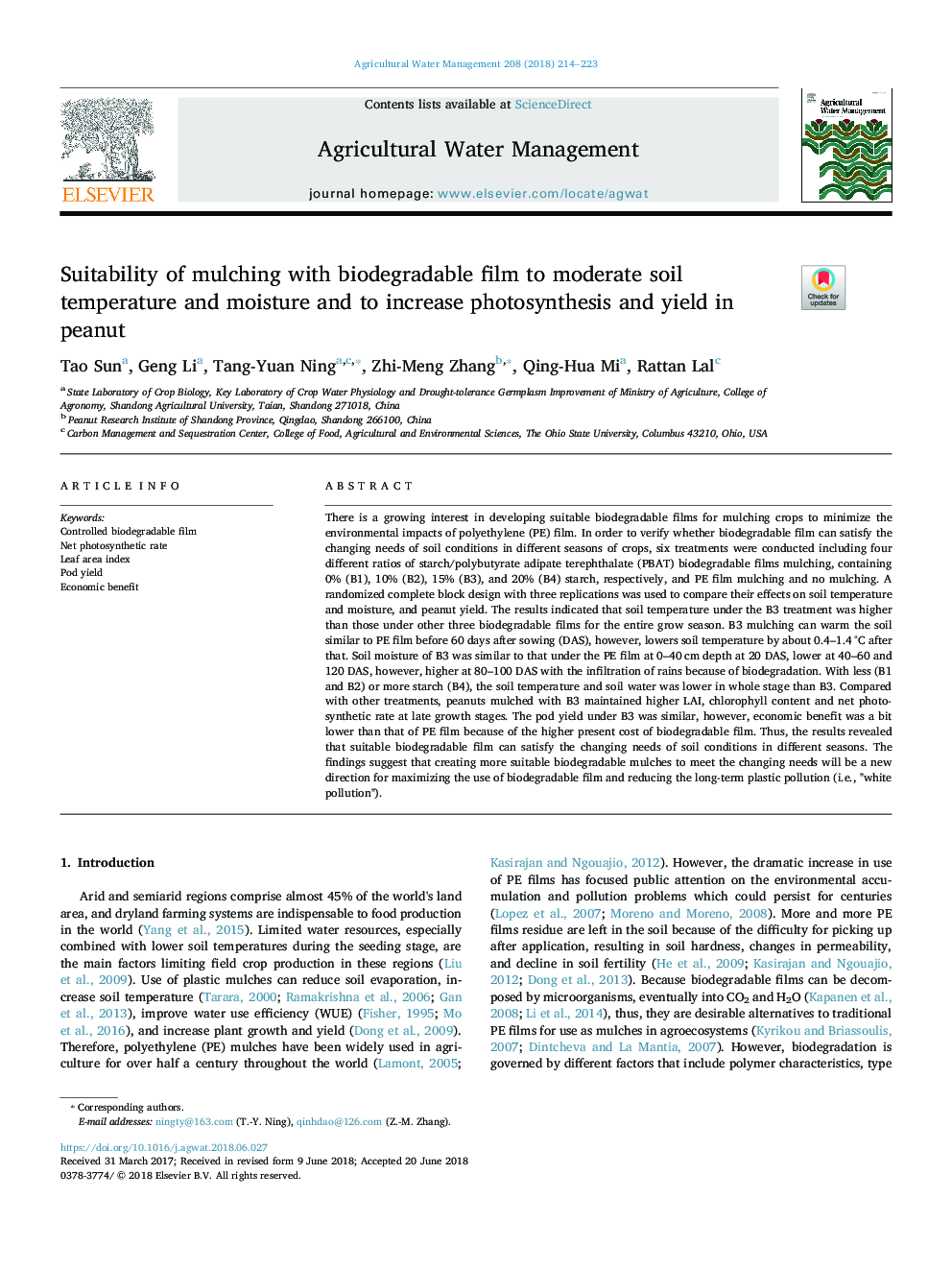| Article ID | Journal | Published Year | Pages | File Type |
|---|---|---|---|---|
| 8872777 | Agricultural Water Management | 2018 | 10 Pages |
Abstract
There is a growing interest in developing suitable biodegradable films for mulching crops to minimize the environmental impacts of polyethylene (PE) film. In order to verify whether biodegradable film can satisfy the changing needs of soil conditions in different seasons of crops, six treatments were conducted including four different ratios of starch/polybutyrate adipate terephthalate (PBAT) biodegradable films mulching, containing 0% (B1), 10% (B2), 15% (B3), and 20% (B4) starch, respectively, and PE film mulching and no mulching. A randomized complete block design with three replications was used to compare their effects on soil temperature and moisture, and peanut yield. The results indicated that soil temperature under the B3 treatment was higher than those under other three biodegradable films for the entire grow season. B3 mulching can warm the soil similar to PE film before 60 days after sowing (DAS), however, lowers soil temperature by about 0.4-1.4â¯Â°C after that. Soil moisture of B3 was similar to that under the PE film at 0-40â¯cm depth at 20 DAS, lower at 40-60 and 120 DAS, however, higher at 80-100 DAS with the infiltration of rains because of biodegradation. With less (B1 and B2) or more starch (B4), the soil temperature and soil water was lower in whole stage than B3. Compared with other treatments, peanuts mulched with B3 maintained higher LAI, chlorophyll content and net photosynthetic rate at late growth stages. The pod yield under B3 was similar, however, economic benefit was a bit lower than that of PE film because of the higher present cost of biodegradable film. Thus, the results revealed that suitable biodegradable film can satisfy the changing needs of soil conditions in different seasons. The findings suggest that creating more suitable biodegradable mulches to meet the changing needs will be a new direction for maximizing the use of biodegradable film and reducing the long-term plastic pollution (i.e., "white pollution").
Related Topics
Life Sciences
Agricultural and Biological Sciences
Agronomy and Crop Science
Authors
Tao Sun, Geng Li, Tang-Yuan Ning, Zhi-Meng Zhang, Qing-Hua Mi, Rattan Lal,
